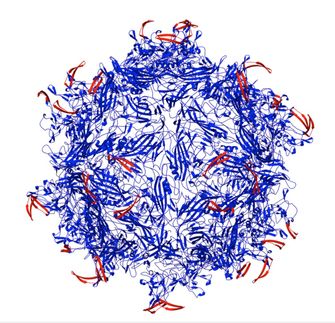Mirror-Image Peptide Drug Discovery Provides a Novel Route for Early Drug Screening
Advertisement
GenScript Corporation has made a new addition to its collection of early drug discovery services, a means of circumventing one problem that troubles peptide drug discovery: the peptide leads involved in such studies are highly susceptible to degradation from common endogenous proteases.
One common way to sidestep this problem is to build the desired lead out of D-amino acids. While only a few are completely non-immunogenic, D-peptides consistently tend to be less immunogenic than their L-peptide counterparts. However, this method requires the construction of full D-peptide libraries, which can be prohibitively costly.
GenScript takes a different approach that significantly diminishes the cost of mirror-image peptide drug discovery. GenScript constructs libraries of easily amendable L-peptides, which are then screened with mirror-image D-molecules of the target proteins. First, the D-enantiomer of the target protein is chemically synthesized and used to isolate natural L-peptide leads from a phage display library or chemically synthesized peptide library. Then the D-enantiomers of the most potent leads are produced for optimization and clinical trials. The service covers the entire early stage of peptide drug discovery, including library screening and functional assays.
According to the company ,GenScript is currently the only company in the industry to provide such a service. It is expected to be relevant to the synthesis and purification of D-enantiomers of target proteins, the synthesis and screening of L-peptide libraries, the construction and screening of L-peptide phage display libraries, and the synthesis of D-enantiomers of isolated peptide leads, all of which have applications in peptide drug discovery.
Most read news
Topics
Organizations
Other news from the department research and development

Get the life science industry in your inbox
By submitting this form you agree that LUMITOS AG will send you the newsletter(s) selected above by email. Your data will not be passed on to third parties. Your data will be stored and processed in accordance with our data protection regulations. LUMITOS may contact you by email for the purpose of advertising or market and opinion surveys. You can revoke your consent at any time without giving reasons to LUMITOS AG, Ernst-Augustin-Str. 2, 12489 Berlin, Germany or by e-mail at revoke@lumitos.com with effect for the future. In addition, each email contains a link to unsubscribe from the corresponding newsletter.





















































